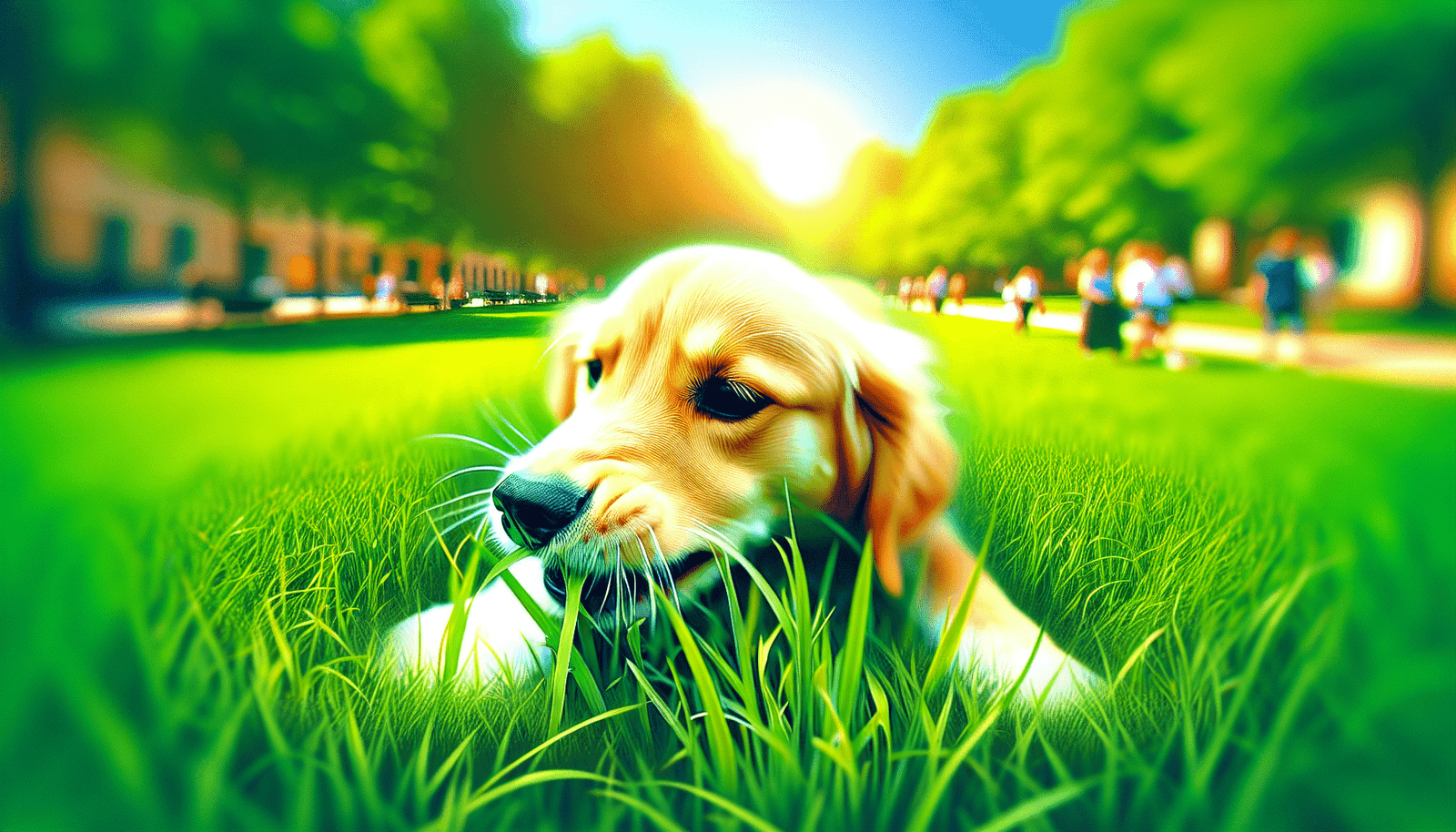Understanding Why Does My Dog Eat Grass?
Have you ever watched your dog munching on grass and wondered why they do it? It’s a behavior that many dog owners notice, but it can be a bit puzzling. In this article, you’ll uncover the reasons behind this curious habit, debunk some myths, and get tips on how to manage it.
Understanding Canine Behavior
Just like humans, dogs have their own reasons for certain behaviors, often shaped by instincts, health, and even their environment. Recognizing these motivations can help you better understand your furry friend.
The Instinctual Root of Grass Eating
Dogs are descendants of wolves, and many of their behaviors can be traced back to their wild ancestors. While your dog may seem entirely domesticated, some instinctual behaviors linger.
- Hunting and Foraging
Wolves often ate plants along with their prey. While your dog may not be out hunting, this instinct can still manifest as he sniffs and nibbles on grass. - Searching for Nutrients
In the wild, animals sometimes eat plants to complement their diet. Your dog might be trying to self-medicate or fill some nutritional gap in his diet by munching on the greens. - Behavioral Mimicry
Dogs are social animals that often learn from observing others. If your dog sees other dogs eating grass, he might do the same out of curiosity or to imitate.
Health Considerations
Sometimes, dogs eat grass due to health-related reasons. Here are a few possibilities:
- Gastrointestinal Relief
One common theory is that dogs eat grass to induce vomiting. If they feel nauseous or have an upset stomach, grass might prompt them to clear their system. However, you should always consult a vet if vomiting becomes frequent or seems severe. - Dietary Deficiencies
If your dog lacks certain nutrients, particularly fiber, he might instinctively seek out grass to compensate. Ensuring a balanced diet can help prevent this behavior. - Medical Conditions
In some cases, underlying medical issues, like pancreatitis or intestinal issues, might trigger grass eating. If you notice a dramatic increase in this habit or associated symptoms like lethargy or changes in appetite, a visit to the veterinarian is necessary.
Behavioral Reasons
Aside from health-related explanations, your dog’s grass-eating could be behavioral rather than instinctual or medical.
- Boredom or Anxiety
Dogs can display compulsive behaviors when bored or anxious. If your dog isn’t getting enough mental and physical stimulation, he may turn to grass to alleviate restlessness. - Attention-Seeking Behavior
If your dog notices that eating grass gets your attention—whether positive or negative—he may repeat the behavior. Dogs thrive on interaction with you, so it could be a strategy to engage you. - Playfulness
Sometimes, grass eating can simply be a playful act. Your dog might find the texture interesting or enjoy the challenge of pulling up a clump of grass.
Debunking Common Myths
There are many misconceptions surrounding why dogs might eat grass. Let’s clear a few up.
- Myth: Grass is Toxic to Dogs
In general, most grass isn’t toxic to dogs. However, ensure that the grass hasn’t been treated with pesticides or fertilizers, as these can be harmful. - Myth: Grass Eating Always Means Illness
Not all grass eating is a sign of illness. While it can be linked to digestive issues, many dogs eat grass occasionally without any health implications. - Myth: Dogs Naturally Don’t Like Greens
Some dogs do enjoy the taste of grass, especially young shoots. Just because they are primarily carnivores doesn’t mean they won’t munch on a little greenery from time to time.
How to Manage Your Dog’s Grass Eating Habit
If your dog has a tendency to eat grass, there are steps you can take to manage this behavior.
- Consult Your Veterinarian
If you’re concerned about your dog’s grass eating habit, start with a vet check-up. They can rule out any underlying health issues and give you advice tailored for your pet. - Dietary Adjustments
Ensuring your dog has a well-balanced and nutrient-rich diet can help reduce the desire to seek additional nutrients from grass. Look for high-quality dog food that meets your dog’s specific needs. - Increase Exercise and Engagement
Boredom can lead to various undesirable behaviors, including grass eating. Try to provide more physical exercise, through walks and playtime, along with mental stimulation through puzzle toys or training sessions. - Redirect and Distract
If you notice your dog is about to munch on grass, try to distract him with a toy or call him over for a game. Being proactive can help discourage the behavior without punishment. - Consider Training
Teaching your dog commands such as “leave it” can be very effective in curbing this behavior. Reward him when he responds to the command, reinforcing positive behavior.
When to Worry
While grass eating is generally harmless, there are signs that warrant attention:
- Frequent Vomiting: If your dog is vomiting regularly after eating grass.
- Changes in Appetite: Not eating or showing less interest in food could signal a serious problem.
- Lethargy: If your dog is less active than normal and seems slower, it might indicate something isn’t right.
- Bloating or Abdominal Pain: These symptoms require immediate veterinary assistance.
Conclusion
Understanding why your dog eats grass is crucial to ensuring his well-being. While it can stem from instinct, health issues, or behavioral needs, evaluating these factors can help you contextualize his actions. Remember, every dog is unique and what applies to one may not be the case for another. Regular check-ups with your veterinarian and being attentive to your dog’s behavior will help you keep your furry friend healthy and happy.
Your dog’s love for grass isn’t always a cause for concern, but it’s good to keep an eye on it. With the right approach and a better understanding, you can manage this behavior effectively and ensure your canine companion remains in good health.







